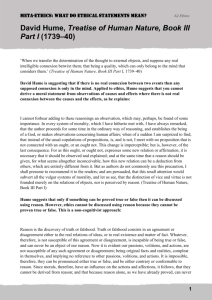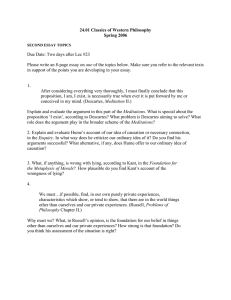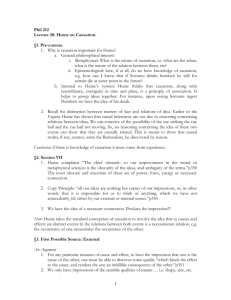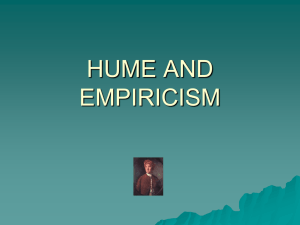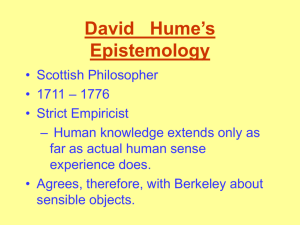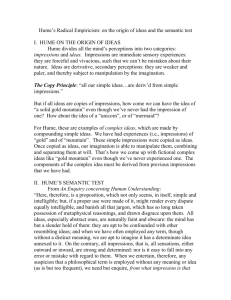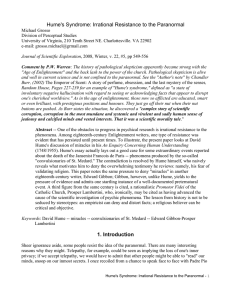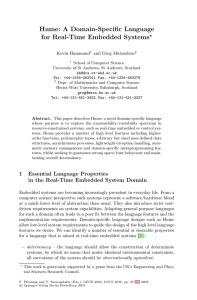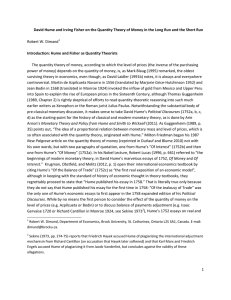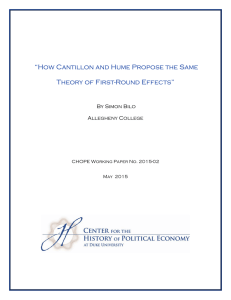24.01 Classics of Western Philosophy IV. Hume Prof. Rae Langton
advertisement
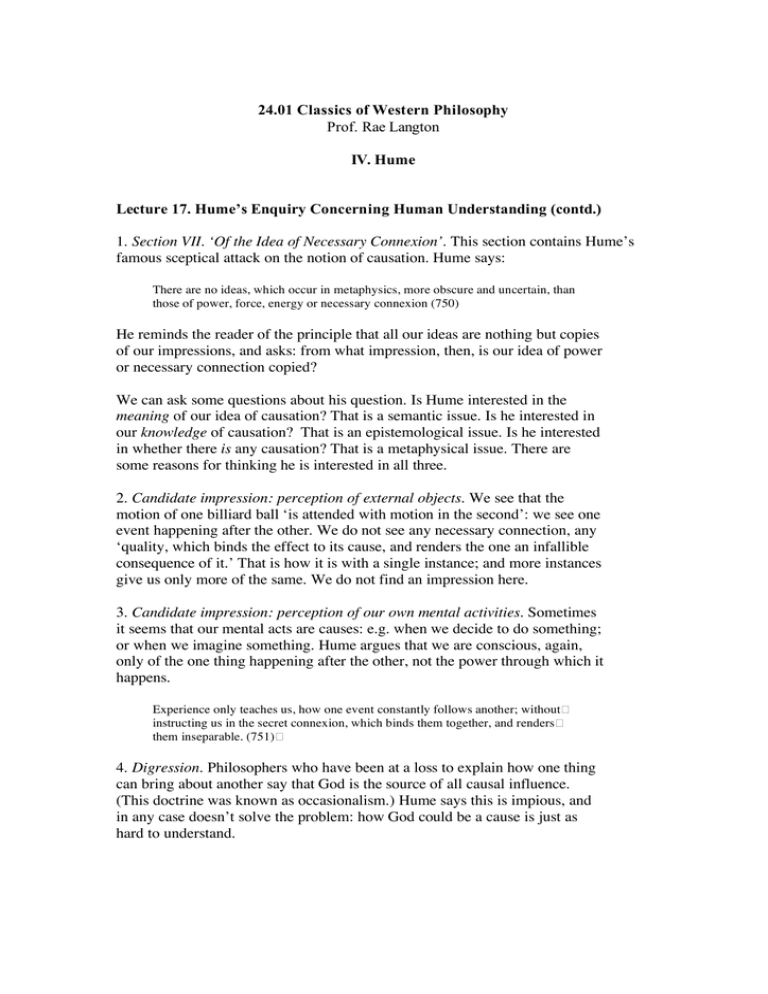
24.01 Classics of Western Philosophy Prof. Rae Langton IV. Hume Lecture 17. Hume’s Enquiry Concerning Human Understanding (contd.) 1. Section VII. ‘Of the Idea of Necessary Connexion’. This section contains Hume’s famous sceptical attack on the notion of causation. Hume says: There are no ideas, which occur in metaphysics, more obscure and uncertain, than those of power, force, energy or necessary connexion (750) He reminds the reader of the principle that all our ideas are nothing but copies of our impressions, and asks: from what impression, then, is our idea of power or necessary connection copied? We can ask some questions about his question. Is Hume interested in the meaning of our idea of causation? That is a semantic issue. Is he interested in our knowledge of causation? That is an epistemological issue. Is he interested in whether there is any causation? That is a metaphysical issue. There are some reasons for thinking he is interested in all three. 2. Candidate impression: perception of external objects. We see that the motion of one billiard ball ‘is attended with motion in the second’: we see one event happening after the other. We do not see any necessary connection, any ‘quality, which binds the effect to its cause, and renders the one an infallible consequence of it.’ That is how it is with a single instance; and more instances give us only more of the same. We do not find an impression here. 3. Candidate impression: perception of our own mental activities. Sometimes it seems that our mental acts are causes: e.g. when we decide to do something; or when we imagine something. Hume argues that we are conscious, again, only of the one thing happening after the other, not the power through which it happens. Experience only teaches us, how one event constantly follows another; without� instructing us in the secret connexion, which binds them together, and renders� them inseparable. (751)� 4. Digression. Philosophers who have been at a loss to explain how one thing can bring about another say that God is the source of all causal influence. (This doctrine was known as occasionalism.) Hume says this is impious, and in any case doesn’t solve the problem: how God could be a cause is just as hard to understand. 5. Sceptical conclusion. One event follows another; but we never can observe any tie between them. They seem conjoined, but never connected. And as we can have no idea of any thing, which never appeared to our outward sense or inward sentiment, the necessary conclusion seems to be, that we have no idea of connexion or power at all, and that these words are absolutely without any meaning, when employed either in philosophical reasonings, or common life.(754) 6. One way of avoiding the conclusion. We really do feel a connection in the mind, arising from habit: and we project this ‘customary transition’ of our mind onto the world. On this option, there is an impression corresponding to the idea: but it is an impression of our own mental habit. This option makes causal talk at least meaningful: but we are in error when we project it on world. 7. Hume’s revised definitions of causation (755) (i) We may define a cause to be an object, followed by another, and where all the objects similar to the first, are followed by objects similar to the second. (Regularity) (ii) Or, in other words, where, if the first object had not been, the second never had existed. (Counterfactual dependence.) (iii) ...another definition of cause...an object followed by another, and whose appearance always conveys the thought to that other. (Projection of mental ‘customary transition’) 8. Hume’s concluding challenge. ‘When we run over libraries, persuaded of these principles, what havoc must we make?’ (789)

